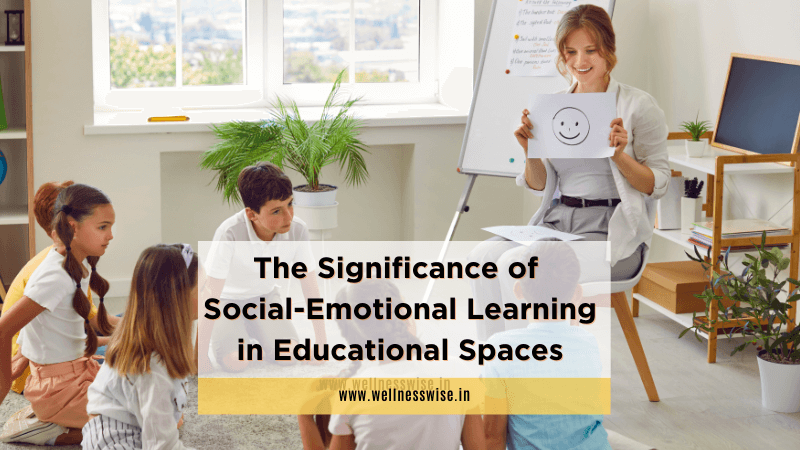
- by Dr. Alka Saxena
- | Views :562
- Read :5 Minutes
“Let’s not forget that the little emotions are the great captains of our lives, and we obey them without realizing it “-Vincent Van Gogh
Human Beings are often referred to as emotional beings. Every day we interact with several people and experience various emotions in these interactions. Emotions like love, joy, sorrow, fear, disgust, and anger are linked to our survival and our connection with society. Consequently, awareness of our own emotions and the ability to regulate them is a skill worth investing in. It helps us adjust well in society and to make decisions in accordance with our values.
Home is the first place where a child learns to connect with others. As a child grows, the school becomes an important space where they acquire knowledge and learn to socialize with their peers. School is a social setting where teachers and students interact with each other at a common platform with shared goals. Every institution aims at creating a favourable environment for the learning fraternity as this is one such area which cannot be left unattended. This can only be achieved when we enhance each one’s social-emotional skills and inculcate positive behaviour in them.
We encounter a wide range of emotions in our daily interactions in classrooms, and this causes significant concerns. Imagine if a child just breaks down in the middle of a class, or if a teacher is trying to teach and some kids are fidgety or distracted by their peers, or if we occasionally witness pupils who put in a lot of effort in their studies but don’t achieve well. As educators, we need to build the capacity to handle these situations, so it becomes imperative for each one to concentrate on social emotional learning in schools. Social emotional learning helps students and teachers to acknowledge, identify and understand their feelings and further build strong relationships.
Why is Social Emotional Learning Important?

School set up is an area where meaningful relationships are established. Through social-emotional learnings we can empower ourselves and make informed decisions. The various components of social emotional learning are- self-awareness, self-management, social awareness, relationships skills, and responsible decision making. It is a proven fact that students with social-emotional competencies have the ability to participate effectively in academics as well as other co- curricular activities.
SEL skills are thus, abilities that facilitate learning, build resilience, and promote prosocial behaviour which in turn motivates to work for the welfare of other people.
Incorporating Social-Emotional Learning in the Classroom

Some of the activities that help to enhance social-emotional learning in the classroom include-
- Begin the day with a feelings check-in
- Incorporate mindfulness activities in daily routine
- Cultivate a culture of compassion and kindness
- Encourage expression through art & craft
- Organize sessions on self-awareness, empathy, and self-regulation
- Provide opportunities to take responsibility
- Create normalcy for emotions by building vocabulary for identifying and naming emotions
- Include goal setting activities
- Incorporate journal writing
- Integrate activities to enhance social skills like working in pairs or groups
What are some of your go-to social-emotional learning activities? Do share with us the tools or strategies that you use to enhance social-emotional learning in your classrooms.
This article beautifully encapsulates the importance of social-emotional learning in creating a nurturing classroom environment. The suggested activities resonate deeply, fostering empathy, self-awareness, and resilience among students. Great job highlighting the essence of social-emotional learning in education!